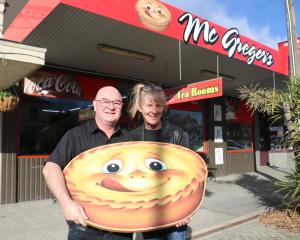The previous financial year was one of the company's most successful and the change reflected the challenges of the meat industry, chairman Graham Cooney said.
The company made a loss before tax of $604,576 for the year ending March 31. The after-tax loss was $449,149, down from a $3.7 million profit in the previous corresponding period, while revenue increased from $101 million to $114 million.
No dividend would be paid this year, which was disappointing, but directors considered it prudent in the circumstances.
While the first half of the year was satisfactory, the second half was "a perfect storm" caused by a combination of industry and local problems, Mr Cooney said.
The opening season schedule at all meat companies in November, for both lamb and mutton, was at levels considerably above what the market justified.
From November to March, market prices for most items reduced at an "alarming rate" from the record levels available in mid-2011.
The ongoing prices being paid to farmers reduced, at best, to a similar rate to the market falls but, given a starting point that was too high, the prices never caught up with the market.
Currency movements during that period tended to reduce returns, while the EU challenges and subsequent northern hemisphere recession led to markedly reduced demand and major uncertainty in traditional markets.
A "unique season" in the company's catchment brought very dry conditions in December, January and early February.
Combined with excellent growing conditions in the rest of the country, store stock prices were at record levels during that period.
Those prices had no relationship with the market and resulted in unequalled outflows of lamb and sheep numbers to northern areas, Mr Cooney said.
Good growing conditions in all areas from mid-February onwards meant a slower-than-usual kill in February and March.
New Zealand product in most international markets had also been undercut by Australian exports, which were at record levels for early 2012.
Companies could not blame anyone else for an opening schedule that gave "unrealistic expectations" to producers and they must also accept full responsibility for not reflecting what was happening in the market as the season progressed.
There were things occurring in stock procurement that companies and farmers could work together on if they were genuinely concerned about a profitable future sheep meat industry.
Both parties were to blame for the perception, that was becoming a growing reality, that third-party agents had a future in the profitability of the meat industry, Mr Cooney said.
"The fact is that those who do a responsible job do add value. However, the majority have no interest in the international market and do not consider it has anything to do with their role. Consequently, they add cost, not value, to the industry," he said.
Despite the challenges, the long-term future of sheep meat farming was strong, he said.












